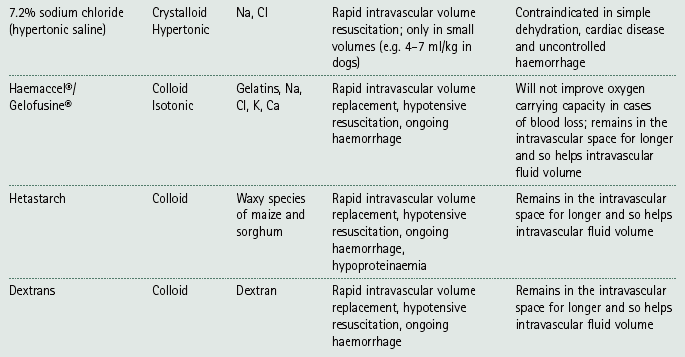
A deficit of the extravascular fluid compartment (interstitial and intracellular) causes dehydration. The key feature to an appropriate fluid plan is accurate determination of hydration status. However the most effective therapy of AKI is careful management of fluid balance, which involves thoughtful assessment of hydration, a fluid treatment plan personalized for the specific patient, repeated and frequent reassessment of fluid and electrolyte balance, with appropriate changes in the treatment plan in response to the rapidly changing clinical situation of the renal failure patient. Many drugs have been evaluated for their benefit in treating AKI, and some are helpful in certain settings.

With renal disease, urine volume is frequently abnormally high or low, or inappropriate for the situation, and fluid therapy is tailored for the individual patient to maintain fluid balance. In sick animals, who may not be voluntarily consuming food or water, or who may be restricted from consumption due to vomiting, fluid therapy is necessary to replace these losses. In healthy animals, these losses are replaced by drinking and the fluid contained in food. Additional sensible losses include the volume lost from vomiting, diarrhea, body cavity drainage, burns, etc. The main sensible fluid loss in the normal patient is urine output. There is variation in respiratory losses in dogs, which may lose considerable amounts of fluid by excessive panting, but 22 ml/kg/day is the average. Sweating is a negligible volume in dogs and cats. Insensible losses are those that are not consciously perceived, such as water lost via respiration, normal stool or sweating. Normal fluid losses consist of insensible and sensible losses. In fact, fluid therapy may not be necessary in compensated chronic renal failure with mild to moderate azotemia. Although significant renal disease can be present without azotemia, fluid therapy is generally not necessary in those situations. There is some overlap, however, in that a decompensated patient with chronic kidney disease (CKD) has a superimposed acute kidney injury (AKI) that may require hospitalization for fluid therapy.


Kidney disease is classically compartmentalized into acute and chronic disease, which is a convenient way to view what are very frequently markedly different manifestations of kidney disease.


 0 kommentar(er)
0 kommentar(er)
